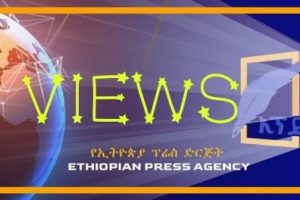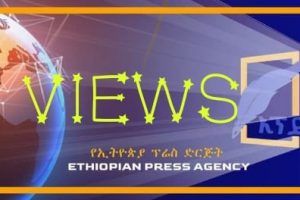BY JOSEPH SOBOKA
To begin with, let alone in a country, it is utterly diffcult to live in a family in which the members do not show agreement on issues pertaining to basic family affairs. Obviously, in making a decision as simple as ‘What should be cooked for dinner?’ there are two options: an individual decision which dominates other members and a collective decision.
The atmosphere would be different for each option. For the development of love between spouses and the growth and wellbeing of the children, the need for unity (collective decision) goes without saying. With the same impetus, in every country, unity, in its larger degree, will be in high demand for the sake of stability and sustainability.
Apparently, in a country, whether it is democratic or other, politically conscious citizens draw together to form political parties. A party, therefore, is a body of persons united in opinion, in support of a cause. Further, where there are democracy, diversity and plurality, one party cannot single-handedly form a government; it takes the coalition of parties, especially in time of national emergency. Parties should address the problem of entanglements to the formation of genuine national unity that embraces all ethnic groups in the country.
There are a number of hindrances in unifying a country for a cause. First and for most, in a multi-ethnic situation, one of the problems is ignorance by some group about the concerns of other ethnic groups. Lack of the understanding of the way of life, the living condition and the problems of other groups need to be given thorough consideration.
Because of arrogance, lack of appreciation and respect for other groups dominates the situation only to escalate the problem of discord among the people. This is because of physical distance, which leads to less exposure to other cultures and socializing only to one’s own ethnic group.
The weakness of such a relationship is that it is not a conducive way to bringing up children, especially at home. The common school values need to be nurtured at home where the ethnic values are usually given more emphasis.
The socio-economic differences among many ethnic groups constitute an important cause of dissatisfaction among some of the people.
Even though the ruling party in the country advocates the integration of various political parties within it, generally, ethnic politics remains an important feature of politics in the country. Coupled with this truth comes the cultural differences. Sociology/anthropology teaches that no culture is superior or inferior to other cultures as long as it serves the values of people that use it.
Because of this, cultural differences easily spark off feelings of prejudice, racism and ethnocentrism. Different cultures mean different styles, the pattern of life, perspective and problem which eventually gives rise to conflict if it not be handled carefully in time.
Cultural hegemony, gained by sheer chance should not be a license to intimidate and look upon other cultures. This is the responsibility left to the ruling party to iron out the problems wisely and sternly before they reach the point of no return.
Reliable means should be sought for all ethnic groups residing in the same territory to coexist peacefully. Segregation or physical distance indeed gives rise to difficulty in physical contact and results in an ethnic group not knowing another ethnic group, especially the one that lives in a different area. Yet, national unity is an ephemeral concept that is easy to voice but difficult to define.
In this context, the question we have to put forward is what type of national unity is in favor of peace, independence, sovereignty and integrity of a nation. After all, it is the strength that binds and inspires the people of our country. Thus, in reality, it is protection, peace, independence, pride, patriotism, and social cohesion also known as unity.
In other words, national unity ensures protection, independence of the citizens filled with national pride, patriotism and the joy of being one. Furthermore, in the determination of the peace, independence, sovereignty, and integrity of our nation, national unity is of the highest importance to the protection of peace, independence, sovereignty, and integrity of a nation. The concepts sound rather intertwined.
We should consider the importance of unity in a social order. Unity is a very powerful term that cannot easily be reckoned with. The usual desire “Unity in diversity” is the tagline of us all. Every human being is the same, all of us have two eyes, one nose, two ears, one heart, one liver, two kidneys, blood flowing through veins and much more, excluding exceptions.
Now have a closer look, everyone is unique, including you and your family. Each one of us has a certain kind of behavior. Yet, as social beings, we must unite as our differences in behavior cannot guaranty us peace and security. In spite of our differences, we have to be able to co-exist.
On the other hand, the case of forced national unity is depicted succession crisis which has been a major challenge confronting the political development of many countries both in Africa and elsewhere in the world. The inability to fashion an acceptable and credible pattern of political succession has entailed the wanton destruction of lives and properties.
It is necessitated by post-election violent conflicts which we have witnessed here in our country during the several sham elections. It has led to the lack of confidence of the people on their political leaders and the continuous separatists’ struggles.
The case has been such that the unsettled political succession crisis is the rise in militancy. Moreover, the sad implication of the several attempted and failed political succession strategies such as continual inter-elite manipulation and the arm-twisting maneuver have injected hypocrisy into the system.
This is nothing other than falsely making oneself appear virtuous or good. The culprits restfully lie in their comfort zone unaware of what is brewing right under their nose. They are so numbed that they do not feel the burn.
Thus, it will not be too long before the people whose rights are stolen rise against it and demand justice to be served unconditionally and unequivocally. Yet, this will take place when they raise their voices in unison without any discord in their moves. To do so, people must understand the different kinds of the leader’s evil maneuvers to develop smart responses.
Then, rather than simply sitting and watching, they engage and participate in their governments – identify priorities, problems and find solutions. At the same time, they have to work with the government as well as non-governmental groups to change behavior and monitor progress. Furthermore, they should build dynamic and continuous exchanges of ideas between key stakeholders such as government, citizens, business, civil society groups, media, academia etc.
Together with this, align anti-corruption measures with market, behavioral, and social forces. As a matter of fact, nothing can be accomplished single-handedly; it is concerted efforts of the united front. The local maxim goes ‘if yarn string together, it can tie down a lion, the fiercest and the strongest king of the jungle.’
Different nation-building elements amount to nothing if they individually labor to bring about true change. All of us need to draw and merge to accomplish something useful to all. As a matter of fact, there needs to be the existence of cohesive factors such as the tendency for a group to be in unity while working towards a goal or to satisfy the emotional needs of its members. These groups include sports teams, workgroups, military units, fraternity groups, and social groups etc.
The groups listed have a strong power to bring people together willingly and without any compulsion. To illustrate the idea, let us see a few, soccer fans, without being bribed or convinced, they go headlong into the situation that they think is harmful to their club and go to any extent to defend it whether it is rational or irrational.
So much does unity, at the local or international level, to satisfy the needs and desire of the members. “The united we stand, the divided we fall,” once said President Kennedy, the United States of America. How about us?
The Ethiopian herald December 16/2020





